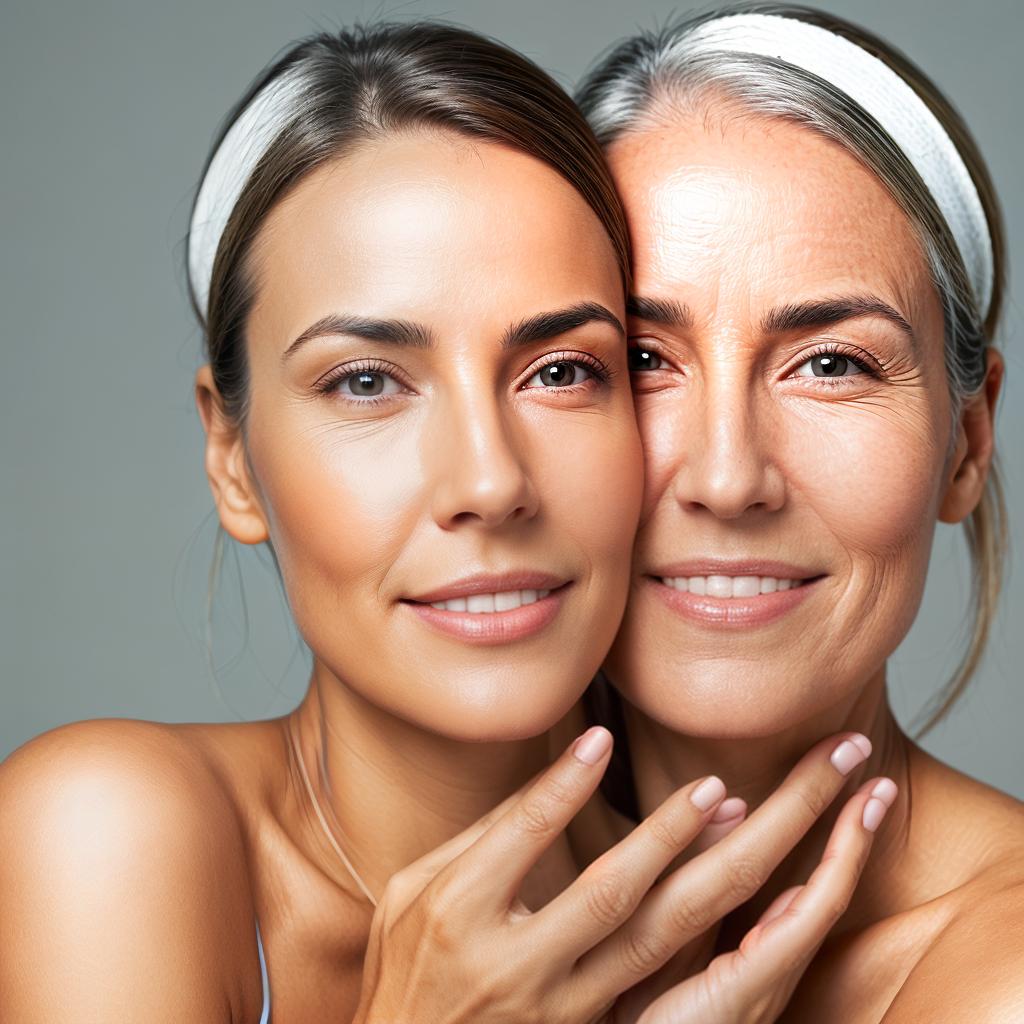As the years pass, one of the most visible signs of aging is the condition of our skin. Wrinkles, fine lines, age spots, and sagging skin become more prominent, leaving many of us searching for ways to maintain a youthful appearance. But what exactly causes our skin to age, and how can we slow down this natural process? In this blog post, we’ll explore the science of aging and provide you with practical tips on how to keep your skin looking youthful.
Understanding the Science of Aging
Aging is a complex biological process that involves a combination of genetic, environmental, and lifestyle factors. While some aspects of aging are beyond our control, such as genetics, there are several key factors that contribute to skin aging:
1. Collagen and Elastin Breakdown
Collagen and elastin are proteins that provide our skin with structure and elasticity. As we age, the production of these proteins decreases, leading to sagging skin and the formation of wrinkles.
2. Loss of Hydration
As we get older, our skin tends to lose moisture, leading to dryness and a lack of plumpness. This loss of hydration can make fine lines and wrinkles more pronounced.
3. Sun Damage
Exposure to UV radiation from the sun is a major contributor to premature aging. UV rays can break down collagen and elastin fibers, leading to sunspots, uneven skin tone, and wrinkles.
4. Free Radical Damage
Free radicals are unstable molecules that can damage skin cells and accelerate the aging process. They are produced by factors such as pollution, smoking, and a poor diet.

5. Poor Diet and Lifestyle Choices
A diet high in sugar, processed foods, and alcohol can contribute to skin aging. Smoking is also a major offender, as it reduces blood flow to the skin and depletes it of essential nutrients.
Now that we understand the science behind aging, let’s explore how to keep your skin looking youthful.
Tips for Youthful Skin
1. Protect Your Skin from the Sun
One of the most effective ways to prevent premature aging is to protect your skin from the sun’s harmful UV rays. Wear sunscreen with a high SPF daily, and don’t forget to reapply it every few hours when you’re outdoors. Additionally, wear protective clothing, sunglasses, and a wide-brimmed hat.
2. Stay Hydrated
Proper hydration is essential for maintaining youthful skin. Drink plenty of water throughout the day to keep your skin hydrated from the inside out. You can also use a moisturizer to lock in moisture and prevent dryness.
3. Use Antioxidant-Rich Skincare
Antioxidants help combat free radicals and protect your skin from oxidative stress. Look for skincare products that contain antioxidants like vitamin C, vitamin E, and green tea extract. These ingredients can help maintain your skin’s youthful appearance.
4. Follow a Healthy Diet
Eating a balanced diet rich in fruits, vegetables, and lean proteins provides essential nutrients that support healthy skin. Omega-3 fatty acids, found in fish and flaxseeds, can also help maintain skin elasticity.
5. Don’t Smoke and Limit Alcohol Intake
Smoking is a major contributor to premature aging and can lead to wrinkles and dull skin. If you smoke, consider quitting, and avoid exposure to secondhand smoke. Additionally, limit your alcohol consumption, as excessive drinking can dehydrate the skin and lead to premature aging.
6. Get Enough Sleep
Quality sleep is crucial for skin repair and regeneration. Aim for 7-9 hours of sleep per night to allow your skin to recover and rejuvenate.
7. Establish a Skincare Routine
Consistency is key when it comes to skincare. Develop a daily skincare routine that includes cleansing, moisturizing, and using sunscreen. Consider adding retinol or other anti-aging products to your routine under the guidance of a dermatologist.
8. Stay Active
Regular exercise improves blood circulation, which can help nourish your skin and maintain its youthful glow. Aim for at least 150 minutes of moderate-intensity exercise per week.
Frequently Asked Questions (FAQs)
Q1: Can I reverse the signs of aging once they appear?
A1: While it’s challenging to completely reverse the signs of aging, you can significantly improve the appearance of your skin with proper skincare and lifestyle changes. Many people see noticeable improvements with consistent care.
Q2: What is the best age to start an anti-aging skincare routine?
A2: It’s never too early to start taking care of your skin. As a general rule, consider incorporating anti-aging products and practices into your skincare routine in your late 20s to early 30s as a preventive measure.
Q3: Are expensive skincare products more effective?
A3: Expensive products are not necessarily more effective. The key is to choose products that are suited to your skin type and concerns. Consult with a dermatologist to find the right products for you, which can include both affordable and high-end options.
Q4: Can diet alone reverse skin aging?
A4: While a healthy diet plays a crucial role in maintaining youthful skin, it’s most effective when combined with other skincare and lifestyle practices. Diet alone may not be enough to reverse significant signs of aging.
Q5: Is there a “magic” skincare product for anti-aging?
A5: There is no one-size-fits-all “magic” product for anti-aging. The effectiveness of skincare products varies from person to person. A tailored skincare routine that addresses your specific needs is the best approach.
Maintaining youthful skin requires a combination of good skincare practices, a healthy lifestyle, and protective measures. By understanding the science of aging and implementing the tips mentioned above, you can take proactive steps to keep your skin looking youthful and vibrant for years to come. Remember that consistency is key, and consult with a dermatologist for personalized skincare advice. Aging may be inevitable, but the effects on your skin can be managed with the right care and attention.
